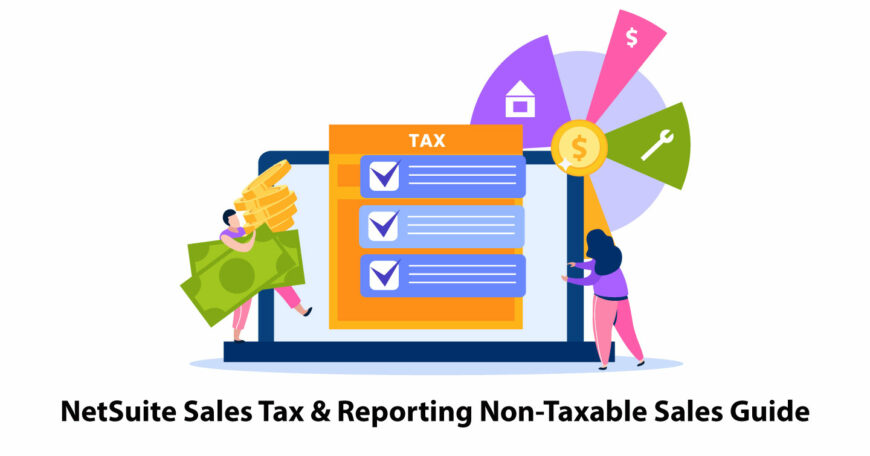In recent years, filing sales tax returns has been more difficult than in the past. NetSuite Sales Tax & Reporting Non-Taxable Sales Guide is designed to help you meet your customers’ needs while meeting the tax authorities requirements.
The market for online sales is becoming more and more understood by tax organizations. In many states, as a neglected source of income, rules have been evolving to keep up with the states’ needs for recovering missed possibilities. Consequently, the requirement for physical presence in a state to establish nexus and be subject to sales tax liability is rapidly fading.
Several businesses operating in a single state have benefited from submitting a single sales tax return monthly or yearly to satisfy their state’s reporting obligations. Clients in states like New Hampshire or Delaware, where sales tax reporting is straightforward, don’t face much difficulty when filing returns. Most companies with an internet presence and/or that ship their goods somewhere other than their home state won’t be in that situation.
NetSuite for Reporting Sales Tax
There is a NetSuite Sales Tax Integration, in all practical terms, will compute the sales tax due for transactions based on nexus and offer a simple mechanism for producing reports for sales tax liabilities by state, county, city, or any other law.
Since Avalara, the owner of AvaTax, presently provides NetSuite tax tables, the obligation amount for sales tax should be as exact as possible if nexus, customer, and item setup are proper.
NetSuite for Reporting Non-Taxable Sales
Non-taxable sales are when NetSuite has a reporting gap for sales tax due. Many states with intricate sales tax regulations, like the significant four of California, Florida, New York, and Texas, demand that businesses disclose their sales tax obligations and any other transactions they make in the state, whether taxable or not. NetSuite uses a generic code to record non-taxable sales.
It is a pretty straightforward strategy that delivers the desired results. This effectively declares the sales tax obligation and recovers the appropriate tax. Nevertheless, it does not provide a way to record non-taxable sales income by state, county, city, etc. Organizations must implement a solution to ensure compliance in states with complex return filing requirements.
Instances:
Avalara’s AvaTax and TaxJar are two examples of integrated third-party tax solutions that NetSuite can use to handle the complexities of sales tax. One of these options may be financially advantageous for your business depending on its size, and they provide ways to file your taxes on your behalf—for a cost, of course. However, the “transaction” count can quickly rise in the ever-expanding online world.
Consumers frequently visit the shopping cart and checkout page during a single session or where several revisions to orders may be necessary for their internal procedures.
A website layout may result in a single sales order counting three or more “transactions” against your monthly usage. This could be a reasonable compromise to help solve the taxation conundrum that every company tasked with collecting and reporting sales tax must deal with.
Why should you hire certified NetSuite consultants?
The skilled NetSuite team has developed a mechanism that does not require a third-party integration to monitor and analyze all taxable transactions by chargeable and non-taxable income by state, county, city, etc.
They have created a mechanism to gather all the necessary data for sophisticated sales tax return filing using NetSuite’s native sales tax module with Advanced Taxes enabled for tax schedules. It gives NetSuite’s native tax computations a real-time check and balance and the ability to view liabilities and non-taxable income per transaction and classify them by tax code.
To make submitting your complex sales tax returns with the NetSuite native alternatives more straightforward than ever, they also have developed saved searches that may take the place of the native sales tax liability reports.
VNMT- Hire Consultants For Your Business
VNMT may be a valuable resource for your team and assist in ensuring that your NetSuite instance is in line with the most recent tools and release guidelines. Our distinguished NetSuite consulting services can help your team put NetSuite’s solutions into use by configuring, customizing, and providing services to fit your particular business operations. We offer assistance, administration, and process improvement to guarantee businesses an investment return.















